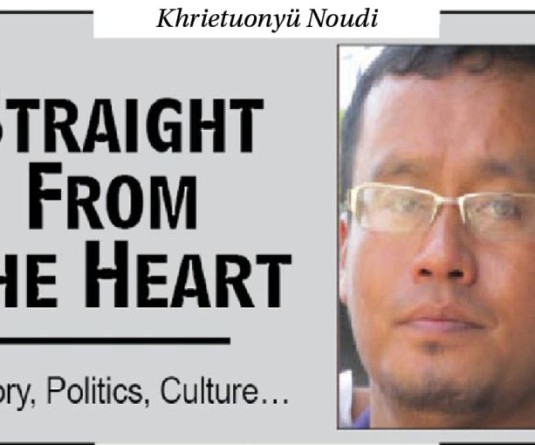
Besesayo Kezo, IPS
Retd DGP
The hills of Nagaland are alive with a debate about security and privacy. The discussion centres around the verification of individuals' identities, a complex issue with implications for both individual liberties and community safety, particularly for the state's Indigenous people. Concerns about the arrival of people from neighbouring countries and other parts of India have spurred calls for stricter identity checks. Those who support this approach argue that anonymity creates risks, potentially hiding individuals with harmful intentions who could destabilize the region and threaten the unique culture of Nagaland's indigenous communities. They believe that transparency and verifiable identities are essential for a secure environment.
Many feel that the increasing presence of outsiders and the state's open borders require a more muscular identification system. They suggest that mandatory verification, including documentation and possibly monitoring those who remain anonymous, is necessary to reduce potential risks. They believe every individual has a unique identity, and those who choose not to identify themselves raise valid concerns about their motives. It's about protecting their future, they argue.
Proponents of stricter verification envision a community where familiarity and transparency build a stronger sense of security, fraternity, and accountability. They believe knowing who lives among them will strengthen social bonds and make dealing with potential threats easier. They also highlight the critical role of local authorities, like landlords and village councils, in identifying and monitoring residents, holding them responsible for any disturbances or criminal activity involving unidentified people in their areas.
However, these calls for stricter verification have met resistance from those who worry about the erosion of individual privacy. Critics argue that mandatory identification could lead to abuse of power, discrimination, and the suppression of opposing views. They point to the potential for misuse, citing examples where such measures have been used to target marginalized groups and silence dissent.
They suggest that community safety can be better achieved by addressing underlying social problems, like inequality and lack of opportunity, and by building community trust and understanding. They contend that too much reliance on identification and monitoring can create an atmosphere of suspicion and fear, ultimately harming social cohesion. Experts also doubt the practicality and effectiveness of widespread verification efforts, especially in a state as diverse and geographically challenging as Nagaland. They question whether such measures would prevent crime and ensure security or create a false sense of security while violating individual rights.
Furthermore, worries about the possibility of data breaches and the misuse of personal information gathered through mandatory verification have been expressed. The absence of strong data protection systems could leave individuals vulnerable to identity theft and other forms of abuse.
The debate in Nagaland mirrors a more significant global struggle to balance security and privacy in an increasingly complex world. It emphasizes the need for careful consideration of the potential consequences of any measures that limit individual freedoms in the name of security. The challenge is finding solutions that protect individual rights and collective well-being.
The discussion in Nagaland continues, with community leaders, civil society groups, and government officials engaging in a dialogue to find a way forward. There's a growing understanding that a nuanced approach is needed to recognise the indigenous population's legitimate security concerns while respecting all individuals' fundamental rights. The search for alternative strategies prioritising community building, social justice, and trust-based security methods is gaining traction. Many believe these approaches and targeted measures to address specific security threats offer a more sustainable and just path toward ensuring the safety and well-being of everyone living in Nagaland and national security. The state's future depends on finding a solution that strengthens the community without sacrificing the principles of individual liberty and privacy.




